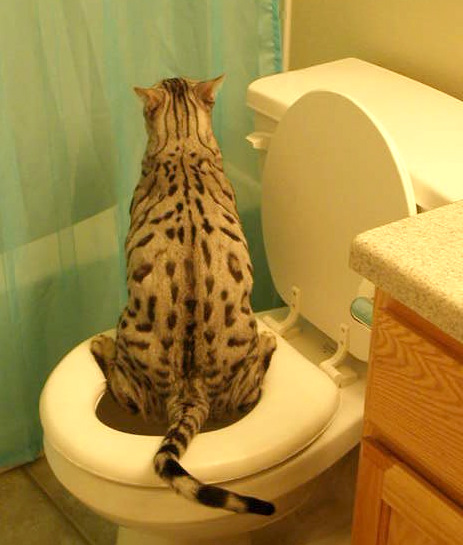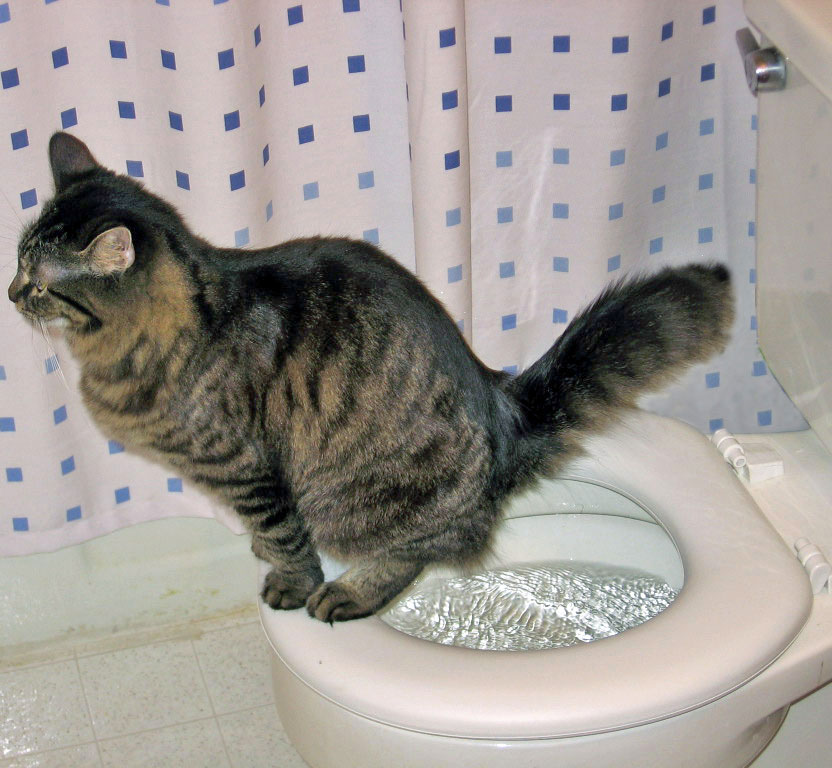Key Reasons Why Animal Waste Should Never Be Flushed Down the Toilet
Key Reasons Why Animal Waste Should Never Be Flushed Down the Toilet
Blog Article
This article underneath in relation to Don't Flush Your Pets Poo Down The Loo, Vet Warns is without a doubt informative. Don't miss out on it.

When it involves throwing away waste, especially animal waste, many individuals usually consider the convenient option of flushing it down the toilet. Nevertheless, this seemingly easy option can have significant consequences for the atmosphere and public health. In this write-up, we'll explore why flushing pet waste down the commode is a negative concept and give alternative methods for appropriate disposal.
Intro
Correct waste disposal is critical for preserving environmental sustainability and public health. While it may appear harmless to purge animal waste down the bathroom, it can lead to numerous concerns, both for the environment and human health.
Dangers of flushing animal waste
Environmental impact
Purging pet waste presents dangerous microorganisms and pathogens into waterways, which can adversely impact aquatic ecological communities. These pathogens can contaminate water sources and injury aquatic life, interfering with delicate ecological communities.
Public health issues
Pet waste has dangerous bacteria such as E. coli and Salmonella, which can pose severe health and wellness risks to human beings. Purging pet waste down the commode can contaminate water products, causing the spread of illness and infections.
Alternatives to flushing
Rather than flushing animal waste down the commode, there are numerous alternative disposal methods that are much more environmentally friendly and hygienic.
Composting
Composting animal waste is an eco-friendly method to get rid of it. By composting, organic matter is broken down right into nutrient-rich dirt, which can be made use of to fertilize yards and plants.
Landfill disposal
Taking care of pet waste in a land fill is an additional option. While not as environmentally friendly as composting, it is a safer alternative to flushing, as it stops the contamination of water resources.
Pet garbage disposal systems
There are customized family pet waste disposal systems offered that safely and hygienically throw away animal waste. These systems often utilize enzymes to break down waste and remove smells.
Steps to correct animal waste disposal
To guarantee appropriate disposal of animal waste, adhere to these steps:
Scooping and landing waste
Regularly scoop and bag pet waste using eco-friendly bags. This protects against waste from infecting the environment.
Utilizing designated waste bins
Dispose of bagged animal waste in designated waste bins, such as compost containers or landfill containers. Prevent flushing it down the bathroom in any way costs.
Cleaning up can and pet locations consistently
Frequently clean litter boxes and pet locations to avoid the build-up of waste and bacteria. Usage pet-safe cleaning products to keep hygiene.
Advantages of correct disposal techniques
Taking on proper disposal approaches for animal waste supplies numerous advantages:
Lowered environmental pollution
Correct disposal methods minimize the threat of environmental pollution, securing waterways and ecological communities from contamination
Lessened danger of water contamination.
By avoiding flushing pet waste down the toilet, the risk of water contamination is substantially decreased, safeguarding public health.
Boosted hygiene and hygiene
Correct disposal approaches advertise better cleanliness and hygiene, producing a more secure atmosphere for both human beings and animals.
Verdict
To conclude, purging pet waste down the toilet is unsafe to the setting and public health. By adopting alternative disposal methods and complying with proper waste management techniques, we can reduce the negative effect of pet waste and add to a cleaner, healthier planet.
What To Do With Dog Poo – The Do's And Don'ts Of Disposing Of Faeces
Dog poo bins
Some councils provide dedicated dog waste bins in popular dog-walking areas that can take dog poo that has been bagged but you can legally dispose of dog waste in any public litter bin, as long as it is securely bagged. This also applies to your wheelie bin at home.
Do not flush
Water companies do not recommend flushing dog faeces down the toilet because certain parasites can survive the water processing treatment and are potentially harmful to humans. You should also never consider flushing dog poo that has been bagged down the toilet as the bags will not break down and instead create severe blockages in the sewage system.
In the woods
The Forestry Commission promotes a ‘stick and flick’ method for dealing with waste in the woods. This means finding a stick and using it to flick any poo from off the path so that it is out of the way of other walkers. You could also bury it as long as it is not in an area where there might be livestock.
Livestock
Parasites found in dog poo can be transmitted to livestock if they inadvertently eat infected faeces that has been left on grazing land. This could result in the death of sheep or abortion in cattle so you should always make sure you pick up your dog’s waste in fields where livestock could be present.

Frequently clean litter boxes and pet locations to avoid the build-up of waste and bacteria. Usage pet-safe cleaning products to keep hygiene.
Advantages of correct disposal techniques
Taking on proper disposal approaches for animal waste supplies numerous advantages:
Lowered environmental pollution
Correct disposal methods minimize the threat of environmental pollution, securing waterways and ecological communities from contamination
Lessened danger of water contamination.
By avoiding flushing pet waste down the toilet, the risk of water contamination is substantially decreased, safeguarding public health.
Boosted hygiene and hygiene
Correct disposal approaches advertise better cleanliness and hygiene, producing a more secure atmosphere for both human beings and animals.
Verdict
To conclude, purging pet waste down the toilet is unsafe to the setting and public health. By adopting alternative disposal methods and complying with proper waste management techniques, we can reduce the negative effect of pet waste and add to a cleaner, healthier planet.
What To Do With Dog Poo – The Do's And Don'ts Of Disposing Of Faeces
Dog poo bins
Some councils provide dedicated dog waste bins in popular dog-walking areas that can take dog poo that has been bagged but you can legally dispose of dog waste in any public litter bin, as long as it is securely bagged. This also applies to your wheelie bin at home.
Do not flush
Water companies do not recommend flushing dog faeces down the toilet because certain parasites can survive the water processing treatment and are potentially harmful to humans. You should also never consider flushing dog poo that has been bagged down the toilet as the bags will not break down and instead create severe blockages in the sewage system.
In the woods
The Forestry Commission promotes a ‘stick and flick’ method for dealing with waste in the woods. This means finding a stick and using it to flick any poo from off the path so that it is out of the way of other walkers. You could also bury it as long as it is not in an area where there might be livestock.
Livestock
Parasites found in dog poo can be transmitted to livestock if they inadvertently eat infected faeces that has been left on grazing land. This could result in the death of sheep or abortion in cattle so you should always make sure you pick up your dog’s waste in fields where livestock could be present.

I am just very interested by 4 Reasons Why Dog Poop Cleanup is Important and I'm hoping you enjoyed the entire entry. If you appreciated our page if you please make sure you remember to share it. Thanks so much for taking the time to read it.
Learn More Report this page